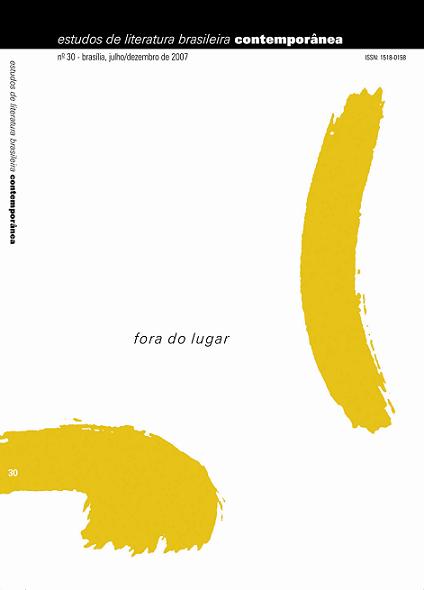Narrativas de formação contemporânea:
uma questão de gênero
Abstract
O romance de formação está intrinsecamente ligado ao meio social onde é escrito e lido, uma vez que ele narrativiza o processo através do qual um/a jovem se torna um membro ativo da
sociedade. Isso implica uma trajetória de modificações no gênero, de acordo com as modificações sociais. O artigo procura retraçar as novas tendências de escritura de romances de formação, centrados em protagonistas que trafegam na contramão por algum motivo, e que até recentemente não encontrariam lugar em narrativas de formação.
Downloads
References
ABREU, Caio Fernando. “Sargento Garcia”, em _______. Morangos mofados. São Paulo: Brasiliense, 1985.
BROWN, Betti. Pecados safados. Rio de Janeiro: Rosa dos Tempos, 1995.
EVARISTO, Conceição. Ponciá Vicêncio. Belo Horizonte: Mazza, 2003.
FRAIMAN, Susan. “The Mill on the Floss: the Critics and the Bildungsroman”.
PMLAA, v. 108, Iss 1, jan. 1993.
_______. Unbecoming Women. British Women Writers and the Novel of Development. New York: Columbia University Press, 1993.
HARDIN, James (ed). Reflection and Action: Essays on the Bildungsroman. Columbia: The University of South Carolina Press, 1991.
HUF, Linda. A Portrait of the Artist as a Young Woman. The Writer as Heroine in American Literature. New York: Frederic Ungar, 1983.
LABOVITZ, Esther K. The Myth of the Heroine: the Female Bildungsroman in the Twentieth Century. New York: Peter Lang, 1986.
LIMA, Maria Helena. “Revolutionary Developments: Michelle Cliff’s No telephone to Heaven and Merle Collin’s Angel”. Ariel, v. 24, jan. 1993.
_______. “Decolonizing Genre: Jamaica Kincaid and the Bildungsroman”. Genre, nº 4, v. 26, Winter 1993.
MAAS, Wilma Patrícia. O cânone mínimo: o Bildungsroman na história da literatura. São Paulo: Editora da UNESP, 2000.
PALUMBO, Kathryn E. Psyche Revisited: Images of Female Heroism in American Literature. Dissertação (PhD). Emory University, 1989.
PRATT, Annis. Woman and Nature in Modern Fiction. Contemporary literature, v. 13, nº 4, Autumn 1974.
_______. Archetipal Patterns in Women’s Fiction. Bloomington: Indiana University Press, 1981.
SIEFERT, Susan. The Dilemma of the Talented Heroine. A Study in Nineteenth Century Fiction. Montreal: Eden Press, 1978.
SMITH, John H. Cultivating Gender: Sexual Difference, Bildung and the Bildungsroman. Michigan Germanic Studies, v. 13, Iss 2, 1987.
Downloads
Published
How to Cite
Issue
Section
License
Authors who publish in this journal agree to the following terms:
a) The authors maintain the copyright and grant the journal the right of first publication, the work being simultaneously licensed under the Creative Commons Attribution License-Non Commercial 4.0 which allows the sharing of the work with acknowledgment of the authorship of the work and publication this journal.
b) Authors are authorized to enter into additional contracts separately, for non-exclusive distribution of the version of the work published in this journal (eg publish in institutional repository or as a book chapter), with authorship recognition and publication in this journal.
c) Authors are allowed and encouraged to publish and distribute their work online (eg in institutional repositories or on their personal page) after the editorial process, as this can generate productive changes, as well as increase the impact and citation of published work (See The Effect of Free Access).
d) The authors of the approved works authorize the magazine to, after publication, transfer its content for reproduction in content crawlers, virtual libraries and the like.
e) The authors assume that the texts submitted to the publication are of their original creation, being fully responsible for their content in the event of possible opposition by third parties.


